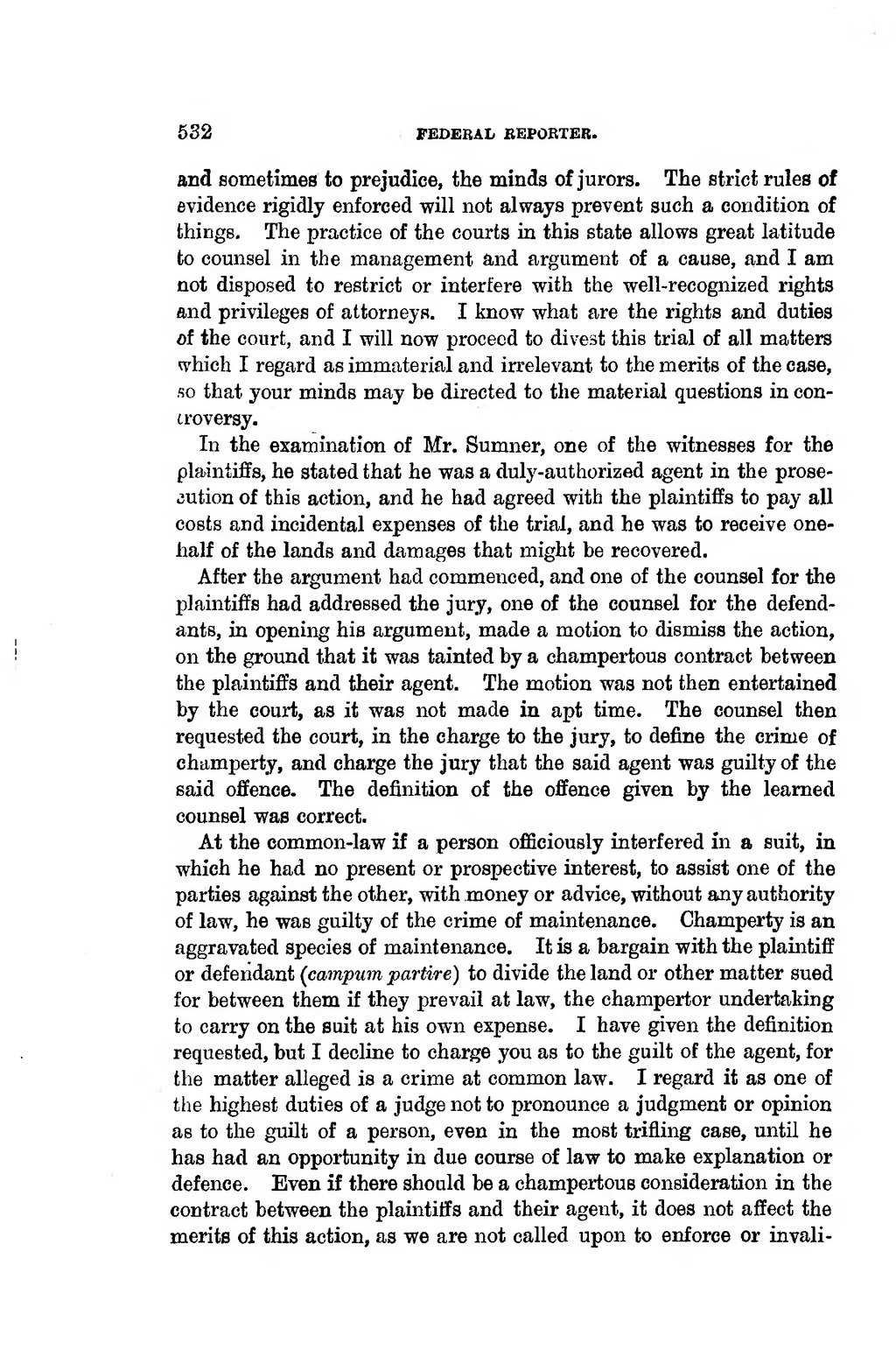532 FEDERAL BBPORTER. �and sometimes to prejudice, the minds of jurors. The strict rules of evidence rigidly enforced will not always prevent such a condition of things. The practice of the courts in this state allows great latitude to counsel in the management and argument of a cause, and I am not disposed to restrict or interfere with the well-recognized rights and privileges of attorneys. I know what are the rights and duties of the court, and I will now proceed to divest this trial of all matters which I regard as immaterial and irrelevant to the merits of the case, so that your minds may be directed to the material questions in con- troversy. �In the examination of Mr. Sumner, one of the witnesses for the plaintiffs, he stated that he was a duly-authorized agent in the prose- jution of this action, and he had agreed with the plaintiffs to pay all costs and incidental expenses of the trial, and he was to receive one- half of the lands and damages that might be recovered. �After the argument had commeuced, and one of the counsel for the plaintiffs had addressed the jury, one of the counsel for the defend- ants, in opening his argument, made a motion to dismiss the action, on the ground that it was tainted by a champertous contract between the plaintiffs and their agent. The motion was not then entertained by the court, as it was not made in apt time. The counsel then requested the court, in the charge to the jury, to define the crime of champerty, and charge the jury that the said agent was guilty of the said offence. The definition of the offence given by the learned counsel was correct. �At the common-law if a person officiously interfered in a suit, in which he had no present or prospective interest, to assist one of the parties against the other, with money or advice, without any authority of law, he was guilty of the crime of maintenance. Champerty is an aggravated species of maintenance. It is a bargain with the plaintiff or defendant (campum partire) to divide the land or other matter sued for between them if they prevaii at law, the champertor undertaking to carry on the suit at his own expense. I have given the definition requested, but I decline to charge you as to the guilt of the agent, for the matter alleged is a crime at common law. I regard it as one of the highest duties of a judge not to pronounce a judgment or opinion as to the guilt of a person, even in the most trifling case, until he has had an opportunity in due course of law to make explanation or defence. Even if there should be a champertous consideration in the contract between the plaintiffs and their agent, it does not affect the merits of this action, as we are not called upon to enforce or invali- ��� �
